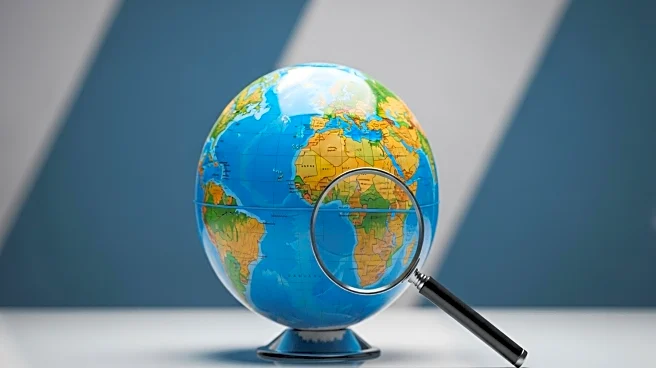What's Happening?
South African President Cyril Ramaphosa has initiated a G20 taskforce aimed at addressing global wealth inequality, focusing on its effects on growth, poverty, and multilateral cooperation. The taskforce, chaired by Nobel laureate Joseph Stiglitz, will present its findings at the G20 summit in Johannesburg this November. This initiative highlights South Africa's commitment to spotlighting issues affecting developing nations, particularly in Africa, such as rising debt and uneven growth. Ramaphosa emphasized the negative impacts of inequality, citing the unfair distribution of COVID-19 vaccines as a significant example. The taskforce aims to transform global frustration into actionable policy proposals, with Stiglitz noting that inequality is a choice and G20 nations can choose a different path.
Why It's Important?
The launch of the taskforce is significant as it underscores a shift in global power dynamics, with South Africa aligning more closely with alternative global governance structures like BRICS, amid strained relations with the U.S. The U.S. has decided not to participate in the upcoming G20 meetings hosted by South Africa, citing disagreements over domestic policies such as land reform. This decision could further weaken U.S.-South Africa relations, potentially pushing South Africa closer to China and Russia. The taskforce's focus on wealth inequality is timely, given the growing global divide where the richest 10% control a significant portion of global wealth, while the poorest half own just 2%.
What's Next?
The taskforce is expected to present its findings at the G20 summit in Johannesburg, which could lead to new policy proposals aimed at reducing global wealth inequality. The U.S. is set to assume the G20 presidency at the end of the year, which may influence future discussions on inequality. The growing alignment of South Africa with BRICS nations could lead to shifts in international alliances and economic policies, impacting global governance structures.
Beyond the Headlines
The taskforce's focus on wealth inequality highlights ethical and social dimensions, as it addresses the systemic issues that contribute to economic disparities. The initiative could lead to long-term shifts in how global economic policies are formulated, potentially influencing the balance of power between developed and developing nations. The emphasis on inequality as a choice suggests a need for a reevaluation of economic and social policies to foster more equitable growth.











